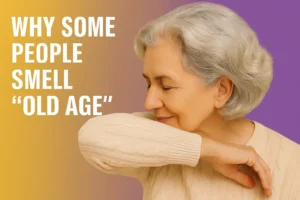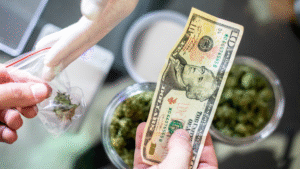Connecticut lawmakers recently advanced a bill to decriminalize small amounts of psilocybin, the psychoactive compound found in “magic mushrooms.” The bill, HB 7065, was celebrated by some as a forward-thinking, therapeutic step toward a more humane drug policy.
And yet, I find myself asking: Why psilocybin? Why now? Why is this bill moving forward while cannabis justice — long overdue and already legally enacted in spirit — continues to stall?
The answer, I believe, lies in a pattern that’s becoming increasingly familiar in Connecticut politics: bold-sounding reform that doesn’t challenge power, doesn’t upset profit structures, and doesn’t truly redistribute opportunity. It’s a recurring script. Progress is welcomed when it’s symbolic and easy. But when it starts to disrupt bureaucratic control or corporate cannabis monopolies, the door quietly closes.
To be clear, I support decriminalization of psilocybin. I support any effort that removes criminal penalties from nonviolent personal use of plant or fungi-based substances. What I don’t support is pretending that psilocybin reform is a substitute for the real, hard work of cannabis justice — particularly when nonviolent cannabis offenders remain incarcerated in our state, medical cannabis patients continue to be overlooked, and communities devastated by prohibition are still being told to wait.
Let’s talk about what’s been buried.
HB 5429 was a modest but important bill designed to protect medical cannabis patients and caregivers. It proposed expanding home cultivation rights, capping excessive lab testing fees, and reinforcing anti-discrimination protections — especially in housing and employment. These are not radical changes; they’re updates needed to preserve a medical program that has been neglected since the adult-use market came online.
Even more critical was HB 6377, a wide-reaching justice and equity proposal. It would have ended ongoing investigations and prosecutions for nonviolent cannabis offenses, automatically expunged criminal records, and created a framework for reviewing — and potentially vacating — sentences for those still behind bars. It also required that 50% of new cannabis licenses go to individuals with past convictions or from communities disproportionately targeted by enforcement. The bill aimed to turn promises of equity into actual policy.
Neither bill received a vote.
Meanwhile, HB 7065 sailed through the Judiciary Committee. And while it may be framed as “decriminalization,” it still allows police to seize and destroy psilocybin and penalize possession with fines up to $500. Cultivation remains fully criminalized. No provision exists for safe access, safe supply, or therapeutic integration. The law creates a new source of revenue through civil enforcement — essentially replacing incarceration with profitable punishment. That’s not restorative justice. It’s a branding exercise.
So why psilocybin and not cannabis? Why did a Schedule I psychedelic advance while more practical and familiar reforms were ignored?
One reason is simple: there’s less money at stake. Psilocybin doesn’t have a billion-dollar industry behind it — yet. There are no multistate operators competing for licenses, no state departments seeking to regulate therapeutic mushroom clinics, no entrenched financial interests to protect.
Supporting psilocybin costs nothing politically. Cannabis, on the other hand, is already a market — a market controlled by a few and heavily regulated by the Department of Consumer Protection (DCP), which has shown a preference for centralized control over community empowerment.
Releasing prisoners, expunging records, and opening up the license structure threatens that model. Reforming cannabis policy in Connecticut means redistributing power, not just changing the optics. That kind of reform is much harder to pass — not because it lacks merit, but because it disrupts comfort.
Then there’s perception. Psychedelics have undergone a cultural rebrand. They’re now associated with therapy, trauma healing, mental wellness, and micro-dosing executives in Silicon Valley.
Cannabis still carries political baggage — linked in the public imagination to over-policing, incarceration, and street-level drug enforcement. Lawmakers would rather ride the new wave of psychedelic hype than untangle the mess they helped create around cannabis.
I don’t write this as someone looking to tear down progress. I write this as someone who has supported reform for years — who has watched Connecticut legalize cannabis without ever truly legalizing the people who used it first. I write this as someone who sees the same communities left out of licensing, left out of policy writing, left out of profit, and left behind in prison. That’s not legalization. That’s selective permission.
If we want to be honest about drug policy reform, we have to be honest about who benefits. We have to ask why symbolic legislation moves forward while substantive justice is delayed. We have to be willing to acknowledge when the appearance of progress is being used to cover for a lack of courage.
It’s no longer enough to decriminalize one substance while maintaining punishment for others. It’s no longer acceptable to protect corporations over caregivers or state regulators over patients. If Connecticut lawmakers want to claim moral leadership on drug reform, then they need to take meaningful action on cannabis — action that centers people, not profit.
HB 7065 may be a step. But it is not the step we most urgently need.
Josiah Schlee is a journalist and cannabis advocate based in Connecticut. His views are politically unaffiliated and his alone.












